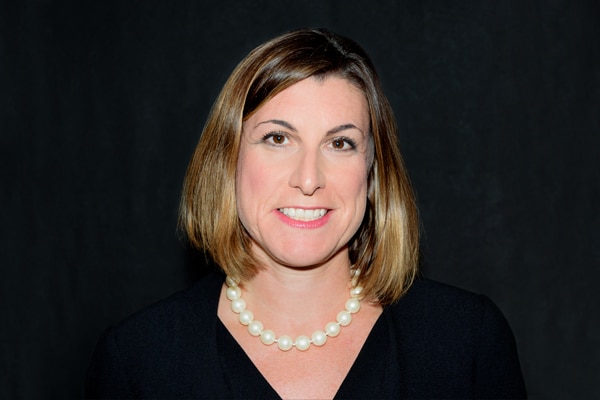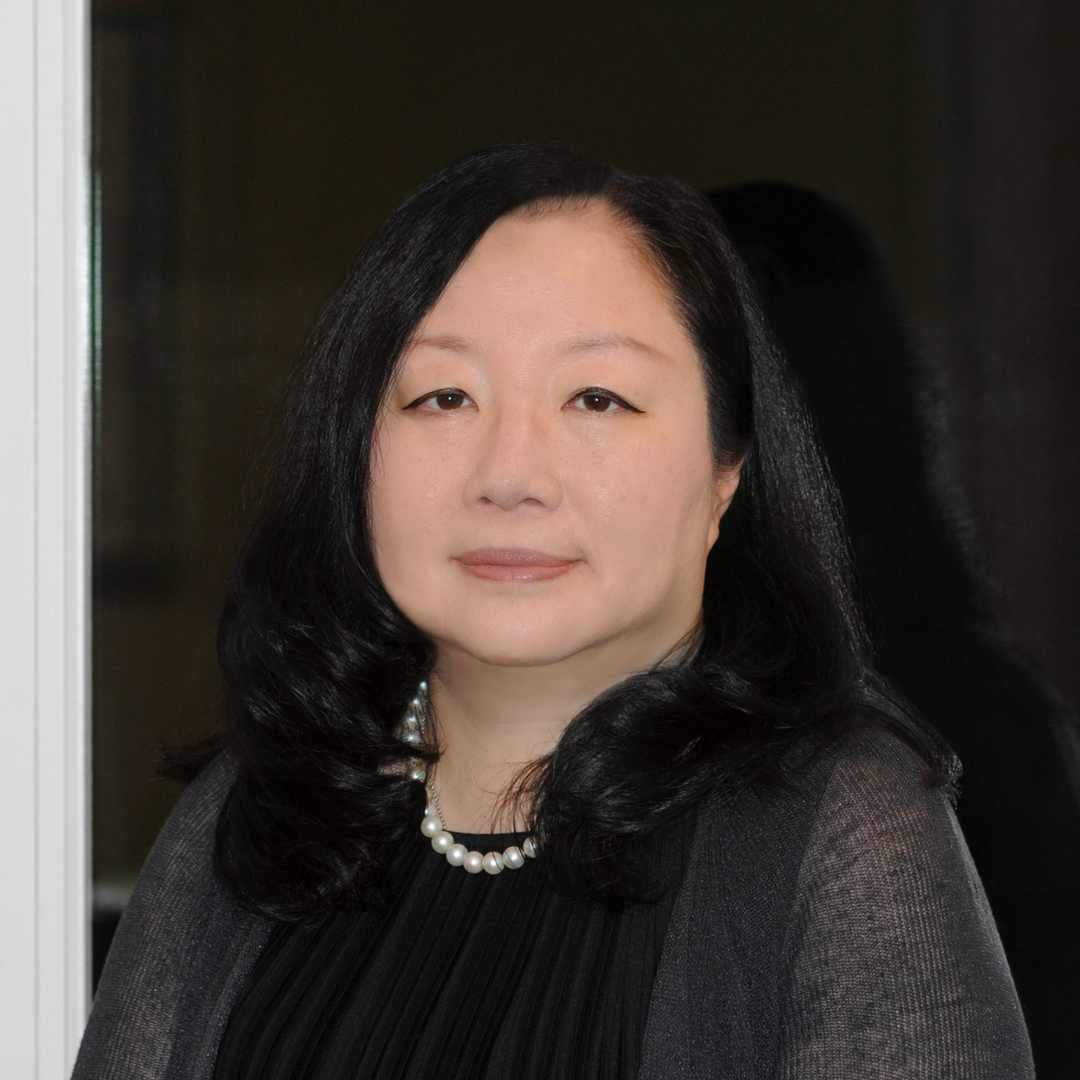Melissa Fisher was a few weeks away from officially committing to an MBA program when she received a letter from the dean of Rutgers Law School, asking whether Fisher had ever considered going to law school.
“While it hadn’t been in my plans, I felt I had to consider law school,” Fisher says with a laugh. “I agreed to meet with her, and we ended up having a three-hour conversation.”
That conversation set Fisher on a path leading to her current position as executive director and associate general counsel at the Depository Trust & Clearing Corporation (DTCC), where she marries her longstanding passions for IT, the law, and innovation.

Created nearly fifty years ago in response to the paperwork crisis on Wall Street, DTCC is a leading “market infrastructure provider” with a history of bringing stability, resilience, and efficiency to global markets, Fisher says. Often referred to as the backbone of the financial services industry, DTCC provides a number of key services, including global data management, asset servicing, clearing, settlement, and institutional trade matching.
In 2018, DTCC’s subsidiaries processed securities transactions valued at more than US $1.85 quadrillion. Its depository provides custody and asset servicing for securities issues from 170 countries and territories valued at US $52.2 trillion. DTCC’s Global Trade Repository service, through locally registered, licensed, or approved trade repositories, processes more than 14 billion messages annually. “We play a critical function in the US markets and now in the global financial markets as well,” Fisher points out. “I am proud to be a part of a company that has played such a critical role in the global financial markets and that continues to help advance the industry through innovation.”
Fisher’s interest in working with technology dates to her first job during college. While attending Columbia University, Fisher started working at a technology firm called Align Communication, first as a receptionist and then as a project analyst. Subsequently, she secured a project manager position at Kraft Kennedy, where she was responsible for managing technology integration projects for corporate legal departments and law firms. She finished her undergraduate degree while working at Kraft Kennedy full-time.
Soon, Fisher decided to pursue an advanced degree to accelerate her work in the IT field. That was when the fateful letter from the Rutgers Law School dean changed her trajectory from business to law. She enrolled at Rutgers Law School in 2002 and graduated with high honors in 2005. After law school, Fisher worked as a general corporate associate at Paul, Weiss, Rifkind, Wharton, & Garrison. However, she never forgot her roots in IT and went on to specialize in intellectual property and technology transactions at Sullivan & Cromwell.
“I received great training and experience and an incredible foundation in the law,” Fisher says of her tenure at those firms. “But I also wanted to learn more about what my clients did. So I started to look for an in-house position where I could really immerse myself in a particular business.”
Fisher found the opportunity she was looking for as the director of global licensing and contracts at S&P Capital IQ. But when a one-of-a-kind position opened up in the legal department at DTCC five years ago, Fisher couldn’t pass it up.
“I am proud to be a part of a company that has played such a critical role in the global financial markets and that continues to help advance the industry through innovation.”
At the time she was hired, Fisher explains, DTCC was actively looking to expand its noncore offerings. As executive director and associate general counsel, Fisher was brought on to advise DTCC’s growing data business. In addition to supporting all aspects of DTCC data services, she uses her dual background in law and technology to manage the company’s IP portfolio, advise on data rights issues, provide counsel to the office of fintech strategy, and most recently, work on the launch of new offerings from DTCC’s repository and derivatives services business.
And as DTCC continues to expand and evolve along with global financial markets, Fisher says, she thinks her background in technology will become even more valuable.
“My experiences have helped me to better appreciate the complexity of large-scale IT initiatives,” Fisher says. “The financial services industry is changing rapidly, and emerging technologies like artificial intelligence and robotics may very well transform the industry in the years to come.
“Lawyers tend to be somewhat risk averse,” Fisher continues, “but my background puts me in a position to better as anticipate, identify, and mitigate those risks.”
But even with the advantage of her background, Fisher notes, it can feel challenging to live up to the high standards lawyers set forth for themselves.
“For lawyers especially, the expectations are always high, and the work can feel all-consuming,” she says. “But the job is just one aspect of your identity—to me, it’s about trying to find a balance between all of the different aspects that make up your whole self.”


